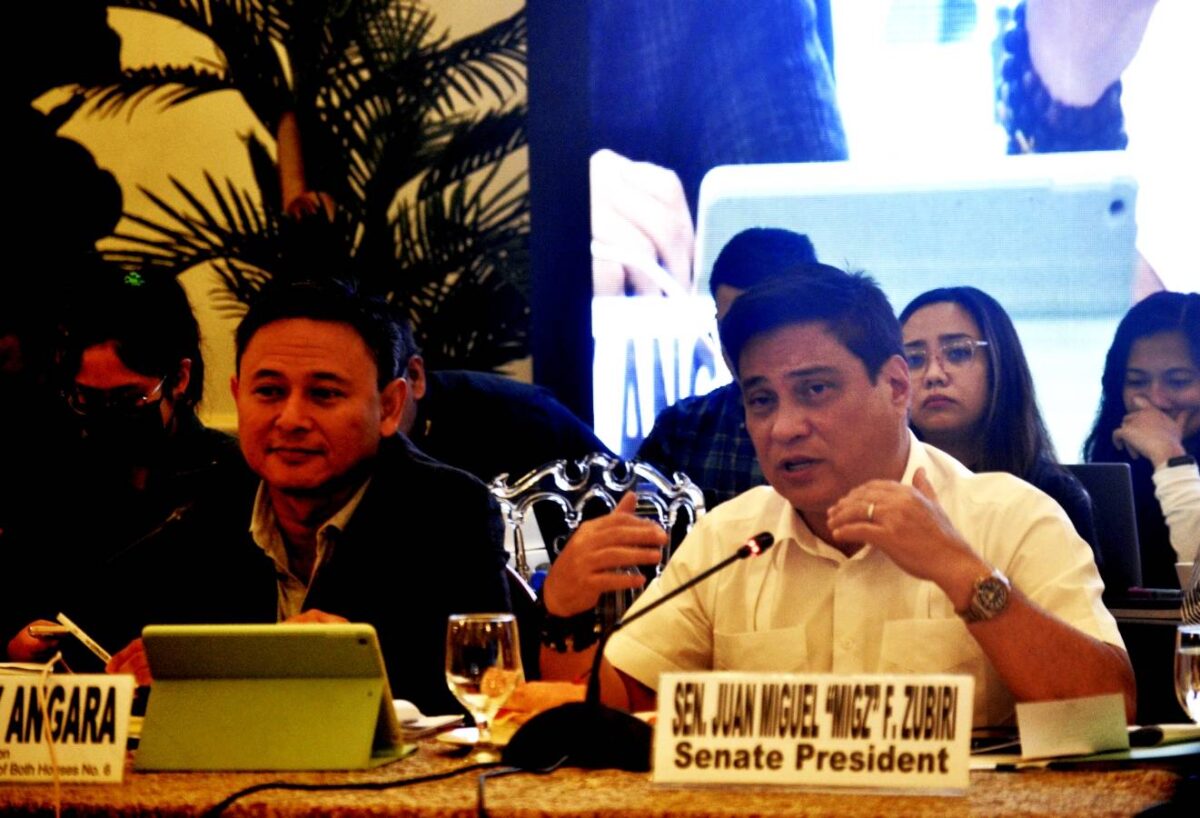Luzon educators raise concern over entry of foreign schools

HEAR US Senate President Miguel Zubiri and Sen. Sonny Angara take part in the public hearing on proposed Charter change held in Baguio City on May 17, where representatives from private schools in Luzon raised concern over the proposed entry of foreign learning institutions into the country. —Carlito Dar/contributor
BAGUIO CITY, Philippines — Luzon educators expressed reservations about easing constitutional restrictions on foreign investments in Filipino education because of the specter of small and medium-sized schools being displaced by elite schools from abroad.
Removing the cap on foreign participation in education as well as land ownership could be tantamount to treason, said Dr. Gudelia Samson, who read the position paper of Pangasinan State University’s Bayangbang campus at a Senate hearing on Charter change held here on Friday.
Samson was reacting to a draft amendment to Paragraph 2, Section 4, Article XIV of the Constitution, which now states that only “basic educational institutions … shall be owned solely by citizens of the Philippines … unless otherwise provided by law.”
READ: University officials air stand on Cha-Cha
“Opening [the school system by 100 percent to] foreigners will only worsen the commercialization of education as foreign corporations are known to be profit-oriented in nature and will not care whatsoever for the country’s achievement of quality education and development such as those happening in other countries like India and mostly African countries,” asserted Samson, who is the campus executive director.
Article continues after this advertisementShe added that foreign ownership of educational institutions could also force small private schools to close shop, leading to the loss of jobs and displacement of students, particularly in areas not served by state-run schools.
Article continues after this advertisementPros, cons
The Mariano Marcos State University’s (MMSU) position paper shared some of these misgivings: “While the intention of lawmakers in creating opportunities and providing access to international standards of education for our Filipino youth is commendable, the same may be pursued and attained without necessarily amending the provisions of the Constitution.”
MMSU, which operates in Ilocos Norte, instead “implore[d] Congress to allocate adequate funds to the country’s educational institutions, especially tertiary education … to make them “at par with foreign counterparts.”
However, some schools saw the positive impact of amending the Charter.
Lawyer Allan Hil Pajimola, legal officer of the Don Mariano Marcos Memorial State University in La Union province, said shifts in the world, like globalization and world crises that are “volatile, uncertain, complex and ambiguous,” require the Constitution to be “responsive and adaptive” to these changes.
But Pajimola said the government must create “a strict regulatory body and procedure for the accreditation and recognition of foreign universities that would like to branch out” to the Philippines, adding that reputable foreign higher education institutions should be given preference to avoid bringing in so-called “diploma mill” schools.”
Baguio Mayor Benjamin Magalong, who attended the hearing, noted that Charter amendments might overwhelm local enterprises like schools from foreign competition, drawing acknowledgment from the hearing’s chair, Sen. Sonny Angara, that the country needs to fortify laws protecting local schools and major businesses.
The Tatak Pinoy Act (Republic Act No. 11981) passed in February is an important economic cushion for all types of businesses because it obligates the government to purchase local products and supplies even when these are marked up higher than imported goods, Angara said.
The hearing organized by the committee on constitutional amendments and revision of codes was attended by Senate President Miguel Zubiri and Senators Loren Legarda, Ronald dela Rosa and Bong Go. —Vincent Cabreza